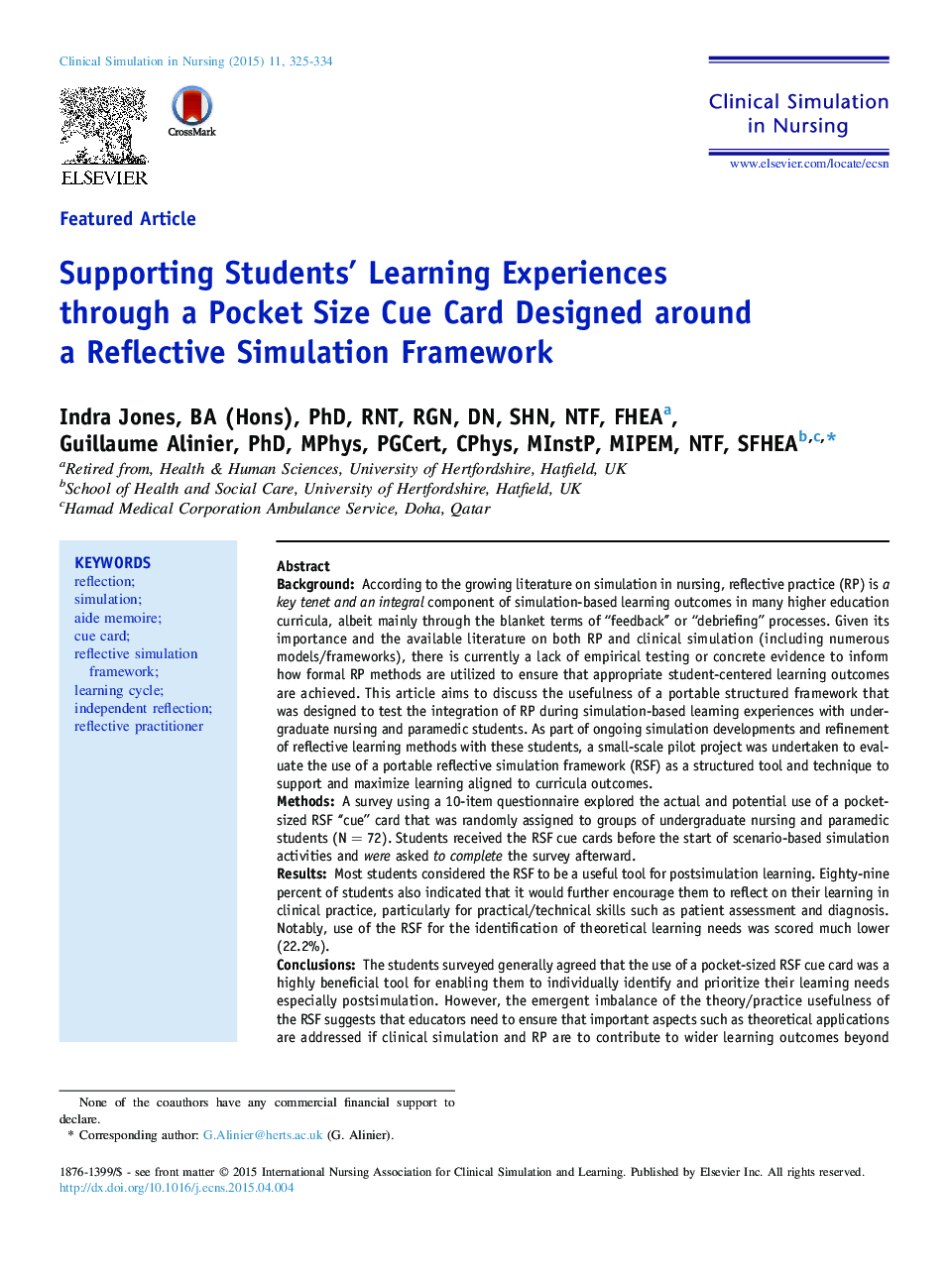| Article ID | Journal | Published Year | Pages | File Type |
|---|---|---|---|---|
| 2646007 | Clinical Simulation in Nursing | 2015 | 10 Pages |
•A cognitive aid card can help learners organize their thoughts during reflection.•Structuring the reflective process should help learners who feel overwhelmed by a simulation experience.•The portable reflective simulation framework card can be used in real clinical practice to encourage independent reflection.•Reflection helps learners identify and prioritize their learning needs.
BackgroundAccording to the growing literature on simulation in nursing, reflective practice (RP) is a key tenet and an integral component of simulation-based learning outcomes in many higher education curricula, albeit mainly through the blanket terms of “feedback” or “debriefing” processes. Given its importance and the available literature on both RP and clinical simulation (including numerous models/frameworks), there is currently a lack of empirical testing or concrete evidence to inform how formal RP methods are utilized to ensure that appropriate student-centered learning outcomes are achieved. This article aims to discuss the usefulness of a portable structured framework that was designed to test the integration of RP during simulation-based learning experiences with undergraduate nursing and paramedic students. As part of ongoing simulation developments and refinement of reflective learning methods with these students, a small-scale pilot project was undertaken to evaluate the use of a portable reflective simulation framework (RSF) as a structured tool and technique to support and maximize learning aligned to curricula outcomes.MethodsA survey using a 10-item questionnaire explored the actual and potential use of a pocket-sized RSF “cue” card that was randomly assigned to groups of undergraduate nursing and paramedic students (N = 72). Students received the RSF cue cards before the start of scenario-based simulation activities and were asked to complete the survey afterward.ResultsMost students considered the RSF to be a useful tool for postsimulation learning. Eighty-nine percent of students also indicated that it would further encourage them to reflect on their learning in clinical practice, particularly for practical/technical skills such as patient assessment and diagnosis. Notably, use of the RSF for the identification of theoretical learning needs was scored much lower (22.2%).ConclusionsThe students surveyed generally agreed that the use of a pocket-sized RSF cue card was a highly beneficial tool for enabling them to individually identify and prioritize their learning needs especially postsimulation. However, the emergent imbalance of the theory/practice usefulness of the RSF suggests that educators need to ensure that important aspects such as theoretical applications are addressed if clinical simulation and RP are to contribute to wider learning outcomes beyond practical competencies alone. Further studies to test and extrapolate more in-depth use and efficacy of the RSF with students and facilitators are also recommended.
